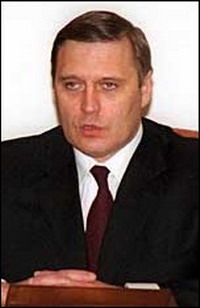Russia toughens punishment for extremism

As a court began considering if a banned opposition group is an extremist organization, lower house of Russian parliament approved the legal amendments toughening criminal punishment for extremism.
The moves follow police crackdowns on opposition demonstrations in Moscow and St. Petersburg and signal authorities' determination to quash dissent in the run-up to the parliamentary elections in December and a presidential vote next March.
The State Duma voted unanimously to pass the amendments, which introduced up to three years' imprisonment for vandalism based on ideological and political motives. The loose formula could allow authorities to punish participants in opposition protests if violence erupts.
Meanwhile, the Moscow City Court started considering the chief prosecutor's request to declare the already-banned National Bolshevik Party an extremist organization - a move that would allow authorities to toughen punishment for its members and could discourage other Kremlin opponents from joining it in protests.
The National Bolshevik Party, led by irreverent ultranationalist novelist Eduard Limonov, has played a key role in organizing the so-called "Dissenters' Marches," the latest of which were held in Moscow and St. Petersburg over the weekend.
Club-wielding police beat many participants and detained hundreds, drawing wide criticism from human rights groups and some Western governments and reinforcing opposition contentions that President Vladimir Putin's government is strangling democracy ahead of the elections.
"Our No. 1 goal is to end trampling on constitutional rights and create institutions that would allow public control over government," said Mikhail Kasyanov, Putin's former prime minister and now a Kremlin critic who took part in Saturday's Dissenters' March in Moscow.
Kasyanov, who has announced his intention to run for president in March 2008, reaffirmed his presidential ambitions while speaking to reporters Wednesday. Russia's fragmented opposition groups are yet to decide on whether to nominate a single opposition candidate.
A group of opposition politicians and liberal economic experts on Wednesday presented a social program for a future opposition presidential candidate.
"It's an attempt to create a basis for a neo-liberal social course," said Irina Khakamada, a Kasyanov ally who oversaw drafting of the program that proposed boosting social protection.
The program criticized the Kremlin for failing to turn the nation's soaring oil revenues into viable health care, social insurance and education programs. "The state has received huge oil proceeds, but nothing has changed in the social sphere," Khakamada said.
Like other opposition actions, the presentation was ignored by state-controlled nationwide television stations that focus on lavish coverage of Kremlin activities.
Subscribe to Pravda.Ru Telegram channel, Facebook, RSS!


